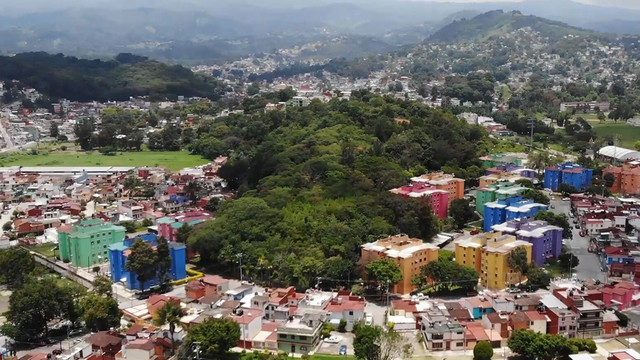State of the cities marks phase two of Transformative Urban Coalitions
Across five ‘urban labs’ local initiatives are showing how transformation and climate justice can be achieved in urban areas.

The hub of the historic centre at Adolfo López Mateos Boulevard in León, México (Photo: Juan Carlos Fonseca Mata, via Wikimedia Commons, CC BY-SA 4.0)
Cities account for 75% of carbon emissions worldwide and at the same time are deeply affected by the climate crisis. Local, inclusive leadership in partnership with urban stakeholders is crucial to reducing carbon emissions and achieving net zero in cities.
The Transformative Urban Coalitions (TUC) programme aims to contribute to the target of zero carbon emissions by 2050 by providing support to cities to transform their social, technological and political structures towards more sustainable systems.
The programme has facilitated the establishment of 'urban labs' in Buenos Aires, Argentina; Leon and Naucalpan, Mexico, and Recife and Teresina, Brazil.
These transformative urban coalitions have developed new strategies, engaging a diverse range of stakeholders to collaborate and exchange knowledge, for co-creating innovative solutions to complex urban challenges. They address local challenges in urban development and inequality, while at the same time reducing carbon emissions.
These innovation labs have each produced a story showing their local challenges, goals and successes in creating decarbonised and just urban futures. They each focus on at least one aspect of transformation: building new coalitions through inclusion and empowerment; integrating decarbonisation with social justice; tackling root causes of vulnerability; changes at scale, catalytic impact; durable outcomes; mindset shifts; policy shifts and shifts in governance arrangements; innovation.
Together these stories make up the 'state of the cities', which show the myriad possibilities for how local communities, housing cooperatives and informal settlements groups can lead on urban climate action.
IIED principal researcher Anna Walnycki said: “The urban labs in cities across the global South are leading the way on urban decarbonisation that respects and reflects the needs of the poorest urban dwellers, who are also the most affected by climate change. Cities everywhere can learn from the ‘state of the cities’ stories.
“We look forward to phase two of the TUC programme where we can continue to work with partners to integrate achieving net zero cities with tackling poverty, inequality and achieving social justice.”
The TUC programme is a coalition between United Nations University – Institute for Environment and Human Security (UNU-EHS), German Institute of Development and Sustainability (IDOS), World Resources Institute (WRI) and IIED, with support from Germany's Federal Ministry of Economic Affairs and Climate Action.
Contact
For more information, email Anna Walnycki: anna.walnycki@iied.org




